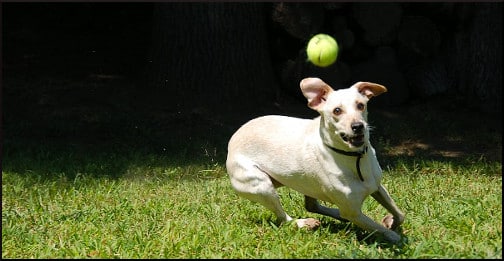
Not all horses are pets, and the number of pet owners who have horses is relatively small. Still, it is impossible to resist passing along a fascinating fact from the paper co-authored by Dr. Robert A. Pretlow and Dr. Ronald J. Corbee. Four different sources are cited to back up the likelihood that as many as 54% of horses are obese. Even the low guess is 27%, which is around one out of four, or one-quarter.
In our mind’s eye, we see sleek, muscular animals running around a track, or a fantastically agile pony carrying its cowboy rider to safety. Horses are not supposed to be fat! And neither are dogs or cats, the much more familiar pets in homes across America.
Both kids and pets are subject to environmental influences like the easy availability of hyperpalatable foods and questionable nutritional value even foods alleged to be healthful. Both tend to resort to eating in times of stress, and are vulnerable to becoming hooked on certain foods. Both will eat, or attempt to, when faced with the particular kind of stress known as boredom.
Another environmental influence is the family dynamic. Both pet-parents and child-parents use edible treats as bribes to elicit good behavior. They use treats to calm the child or pet visiting the doctor or vet, and to help the dependent creature forget about minor traumas. Many experts argue against the age-old custom of training a dog with food treats. (Most cats choose not to be trainable at all.)
What the world needs now
As we know from an old pop song, what the world needs now is love, sweet love. But not when it is dispensed in the form of food treats that will ultimately lead to overweight, obesity, and a whole constellation of problems. It is sad but true that both kinds of parents buy affection with calorie bombs. If the parents are at war with each other, and battling desperately for the allegiance of child or pet, the results can be hideous.
As Dr. Pretlow has always said, advertisers take full advantage of this human impulse to equate food with comfort and love. The recent paper, “Similarities between obesity in pets and children: the addiction model,” quotes a commercial that blatantly commands, “Feed the dog good food and get the real love.”
Many factors contribute to obesity, and their relative importance may not be sorted out for some time, but still, there are many recognizable similarities between kids and pets. They need exercise for their bodies and, for aesthetic and spiritual reasons, connection with nature. They need to get outside and move around.
The paper mentions research showing that apartment-bound cats are more obese than those with access to outdoors. It isn’t just the lack of energy expenditure that gets them, it’s also the paucity of environmental enrichment.
Child-parents can’t see it when their kids are getting fat, and neither can pet-parents. That is why Pet Obesity Awareness Day was instituted.
Another similarity is that the prospects for sustainable weight loss are not good. Here is an exerpt from the paper:
Interventions in children have produced modest weight loss at short term, but the weight is often regained in the long term. In dogs, only half of 61% that initiate a weight-loss regimen successfully complete it, and approximately half of the dogs that successfully reach goal weight subsequently regain weight. Obese pet dogs that successfully lose weight and maintain the weight are the minority.
Your responses and feedback are welcome!
Source: “Similarities between obesity in pets and children: the addiction model,” Cambridge.org, 06/17/16
Photo credit: Hans Dekker via Visualhunt/CC BY

 FAQs and Media Requests:
FAQs and Media Requests: 











